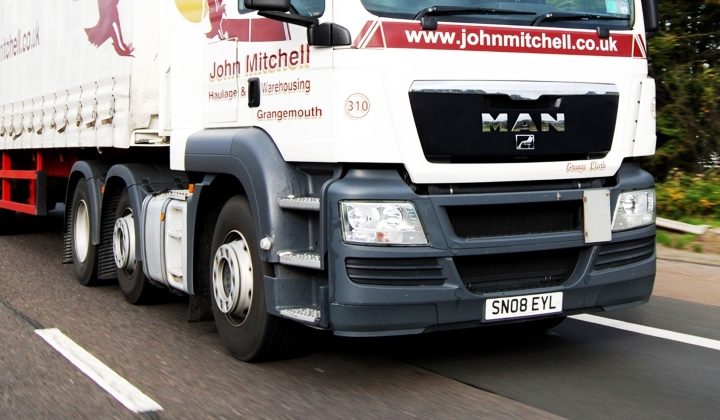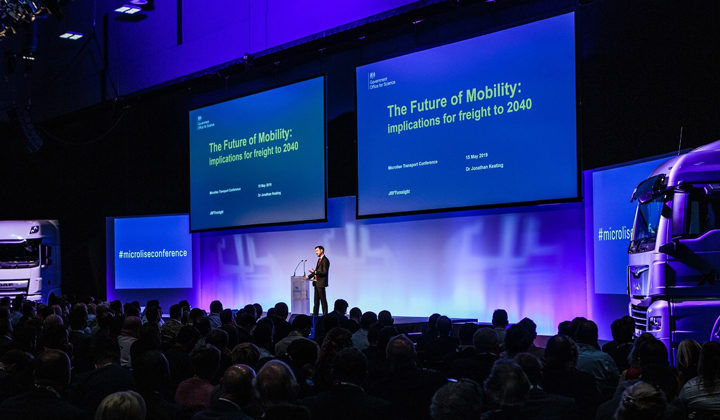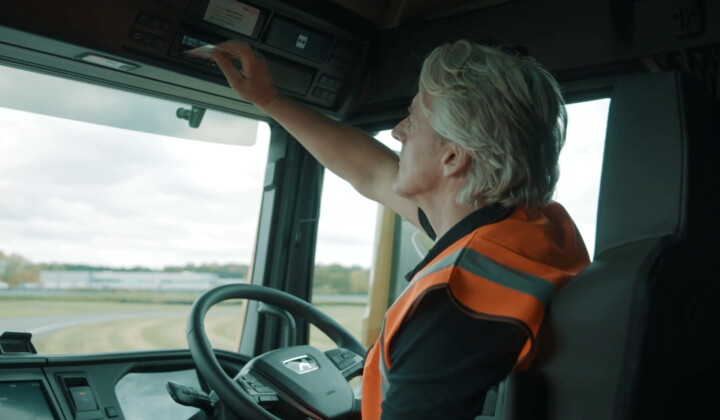First Volvo Cars announce that every Volvo launched after 2019 will have an electric motor; then the French government says it will enact a total ban on petrol and diesel cars by 2040. The British government has quickly followed suit – with the added inclusion of vans. Does this spell the end of the diesel engine?
For the car-maker the move, it says, is “all about the customer”, citing growing demand for electrified vehicles. For the French and British governments it’s all about improving air quality, particularly looking to achieve a reduction in Nitrogen Oxides (NOx). UK ministers estimate £2.7bn was lost in productivity in a single recent year due to poor air quality.
Heavy goods vehicles have, for now, been left out of these plans. They play too important a role in the economy to jeopardise and right now, there simply aren’t the viable commercial alternatives unlike at the lighter end of the market.
The winds are changing though – as exemplified by the Mayor of London’s recent plans to bring forward the Ultra-Low Emissions Zone (ULEZ) in the capital, which will increase charges for the most polluting vehicles, including HGVs, from 2019.
So what do the truck manufacturers think?
Speaking at the Microlise Transport Conference this year Chris Druce, group news editor at Road Transport Media asked Scania, MAN Truck & Bus, DAF Trucks and Iveco executives whether diesel engines are on the brink of becoming a new asbestos-style health scare.
Mark Grant, UK Director of Aftersales at Scania said he thinks it is going that way, but as an industry we need to stop it: “Diesel engines will be with us for many years. We will have alternative vehicles with alternative fuels. But let’s not forget that the diesel engine has been the core for over a hundred years and today with Euro VI technology it is very clean.”
Iveco product director Martin Flach corroborated the view that the Euro VI engine is a very efficient piece of technology. He said Euro VI NOx and particulate emissions tests are now more closely aligned with real-world outcomes – something which wasn’t the case with Euro IV and Euro V technology thanks to the way new legislation has been written.
“In Euro VI the test cycle has changed which has enabled us to put in a cold operation. What we see now is that the results on the road are very much aligned to where the legislation was taking us. So Euro VI is actually making a bigger step change in real life than we would have expected just from the numbers…” said Flach.
Laurence Drake, business planning director at DAF Trucks said: “Diesel is still the primary driver for us. Making the truck as efficient as possible is what we need to do. The way the industry is viewed is a problem and we as manufacturers have to work with everybody to make sure it is seen better.
“The most efficient way to move goods is to use the largest vehicle possible and the most fuel efficient vehicle possible. So talking about a 44 tonner being no good, talking about diesel being no good… that’s the wrong direction to go,” said Drake.
Managing Director of MAN Truck and Bus UK, Thomas Hemmerich, thinks the political environment will force the industry sooner rather than later into e-mobility. “I think e-mobility will come very soon. I think within the next, maximum 5 years, we will see various products from various competitors based on e-mobility and I am not talking light commercials, I am talking heavy commercials. There is no other way to distribute the foods and groceries into megacities like London.”
Replying to this point, Scania’s Grant believes the way logistics companies operate will change pointing to a hybrid trial it is running in London. “We see long distance being diesel, from warehouse to distribution centres at the edges of big conurbations outside of London. And then perhaps hybrid or electric vehicles going in [to the cities]. We see gas as a kind of in-between, particularly biogas. I think over the next five years we’ll see more specific vehicle builds to suit those types of operations.”
Future tech
So the future is unclear, but sentiment seems to be that the diesel engine is being unfairly vilified by the media. It remains the most efficient technology for transporting goods, with Euro VI in particular being a step-change over previous iterations.
But new technologies are on the horizon and political and public pressure may drive an earlier end to the diesel engine than the industry demands. So… which other technologies and fuels are out there?
Natural Gas (Methane) – An excellent low carbon fuel for heavy goods vehicles – it can help to reduce greenhouse gas emissions, sulphur, particulates and nitrogen oxides. Euro V and Euro VI engines have been converted and proven themselves. However methane is more than 20 times more powerful than CO2 as a greenhouse gas. These engines have been known to leak methane – potentially undoing the beneficial impact. If this challenge, along with inflated maintenance costs can be overcome, compressed or liquefied natural gas could be a real alternative to diesel.
Biogas – Similar to natural gas, but a renewable resource derived from food waste. B&Q, Sainsbury’s, Tesco, Waitrose, John Lewis, Argos and Brit European are among many already using the fuel which is reportedly approved under the Department for Transport’s Renewable Transport Fuel Obligation (RTFO) scheme.
Fully Electric Vehicles – With Tesla set to unveil its fully electric 18-wheeler in September, it’s safe to say everyone is a little skeptical that the technology will be practical and have the required range and longevity to succeed. Tesla has been laughed at before – but the company’s success has proved many wrong. Mercedes have also shown off a battery-powered truck with limited edition production runs in 2017. The technology seems to have potential – but can it make the leap to commercial reality?
Hydrogen – Toyota has launched something it’s calling Project Portal. Having already launched a car partially powered by its hydrogen fuel cell system it is turning its attention to heavy-duty trucks. Project Portal has already demonstrated a fully-functioning heavy-duty truck making use of the same technology. The truck generates more than 670hp and 1,325 lb/ft torque from two Mirai fuel cell stacks and a 12kWh battery. The concept’s gross combined weight capacity is just over 36,000kG, and it has an estimated driving range of more than 200 miles per tank. Sounds great – but many challenges need to be overcome including the cost of creating hydrogen fuel, its transport and delivery.
Microlise Transport Conference: Truck to the Future Panel






